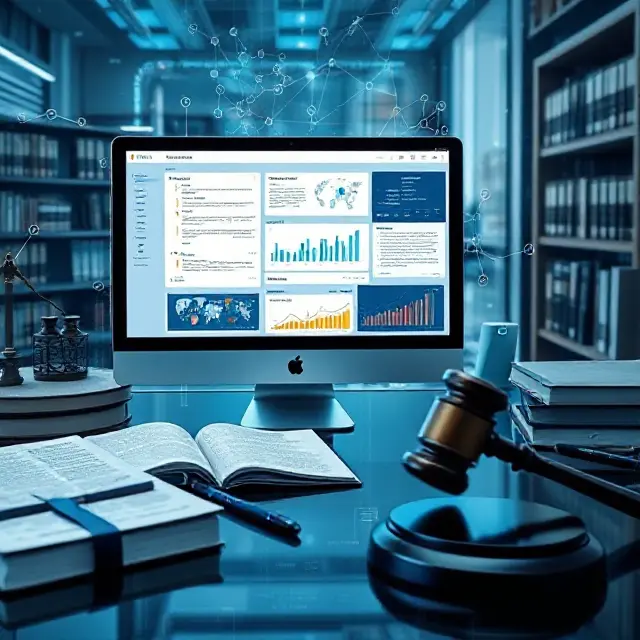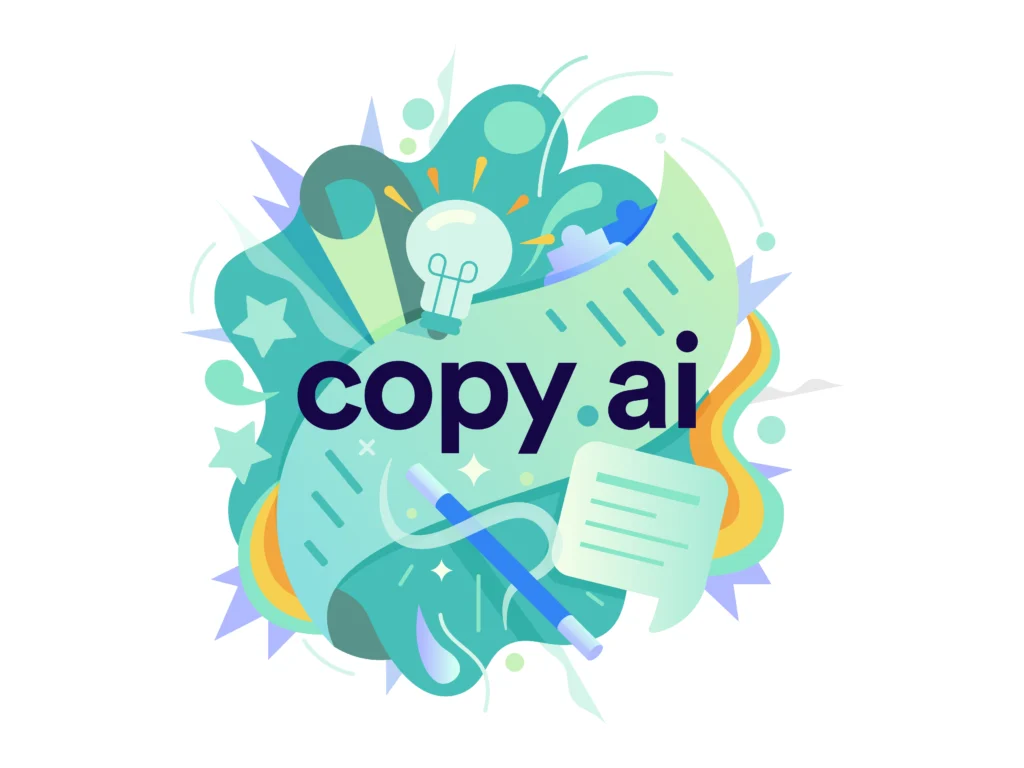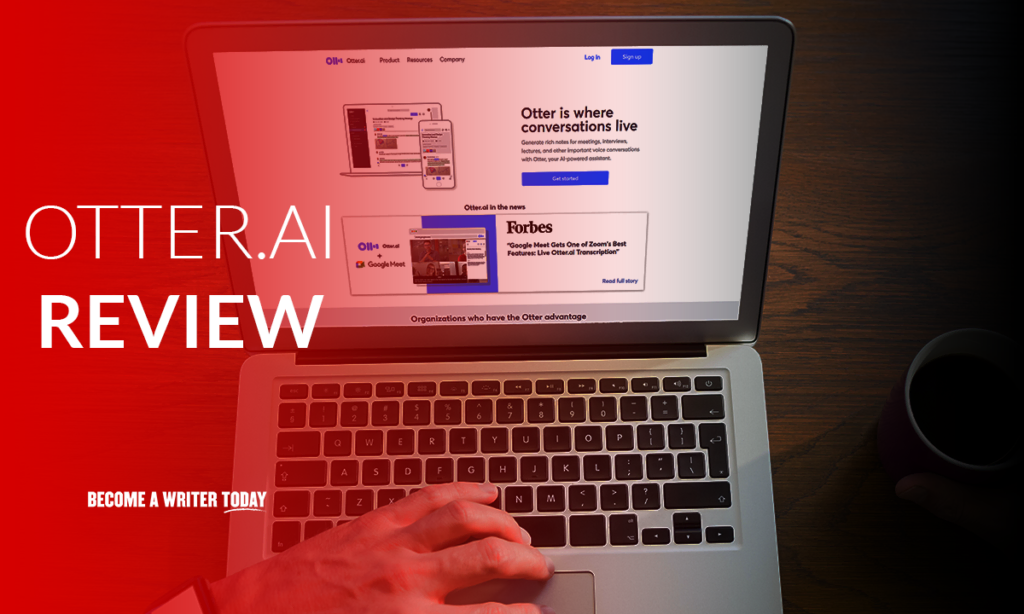Legal AI Tools
Historically, legal work involved a lot of tedious time-consuming processes. Lawyers and attorneys would have to comb through hours of reading, researching and reviewing case details. This not only consumed a lot of time but also raised the risk of human error. It was the volume of work to keep up with, and it was difficult for smaller firms, or those with a very prolific caseload.
Today, we can use technology to help overcome these issues. Legal AIs have made a lot of tasks easier and faster. They can also process massive amounts of information at record speed to extract relevant information, and even guide lawyers in improving their decisions. This has helped the law firms work faster and commit fewer mistakes.
Table of Contents

Explore Top Legal AI Tools
What Are Legal AI Tools?
Legal AI tools are computer software programs created to assist lawyers and legal professionals with different tasks. These tools are capable of going through vast amounts of data, analyzing legal documents, and even predicting case outcomes based on historical data. At a high-level broad sense, these tools do so well at automating human labor using advanced technologies that can save a human-in-the-loop time and provide a more accurate throughout of work.
These tools are not about making lawyers obsolete, they’re tools for lawyers. Legal AI Tool is meant to manage research, document review, contract analysis, and a whole host of tasks that are usually very time-consuming. This will enable lawyers to spend more time on strategic elements of their work, including client advisement and counsel toward more complex case building.
Tools: Old and New
For centuries, lawyers worked to write the law by hand. Lawyers would search books, case law and statutes for relevant information. Legal research could take weeks, and it might take four or five days to review a single contract. Because of the sheer number of documents that had to be reviewed, this was a time when mistakes were more common.
Law firms in the past also had difficulty to access data and research tools. If a lawyer wanted to learn more about a particular legal case, they could by searching through hundreds of records or checking legal libraries across the country. It was an unwieldy and inefficient process.
But with Legal AI tools, it has changed how legal professionals used to work. These tools have helped speed up research, make document review more precise and even improve the accuracy of legal predictions. Able to tap into massive databases of legal information, AI tools can help lawyers find pertinent case law or identify weaknesses in contracts in a flash. Something that used to take days, or weeks, can now be turned out in a fraction of the time.
Salient Features of Legal AI Solutions
Legal AI tools come with different features that make work easy for legal professionals. A few important features include:
- Legal AI tools can read and analyze large volumes of legal documents. They can detect errors, inconsistencies and missing information in contracts, streamlining document review and revision for lawyers.
- Legal Research: These tools are able to sift through towering legal databases, rapidly identifying relevant case law, statutes and regulations. This is particularly useful in complicated cases where lawyers have to collect a lot of data in limited time.
- Contract Management: Legal AI applications can also manage contracts by automating processes such as the drafting, reviews, and storage of contracts. They can also flag important clauses and recommend changes to ensure that contracts are compliant with legal guidelines and error-free.
- Predictive Analytics: Certain Legal AI tools can predict how a case may turn based on historical decisions and trends. This could lead to lawyers having a more complete picture of how to settle or carry forward a case.
- Automating Repetitive Tasks: The routine nature of several activities in the legal field like billing, client intake or document filing can all be automated using Legal AI tools. That allows lawyers to spend time on more complex work that needs their skill set.
Top Artificial Intelligence Tools in the world for Law :
- Clio Duo : An AI Tool that only uses your firm’s data, for exact contextual information.
- CoCounsel : The world’s first legal assistant that’s a knowledgeable, reliable and secure enough tool to power the practice of law.
- Smith. ai : Smith. ai is an outsourcing service using a “virtual receptionist” to answer calls for lawyers and law firms.
Benefits of Legal AI Tools
Legal AI tools have proven to be a boon for the legal profession. The key benefits are:
- Efficiency: One of the most significant advantages of Legal AI tools is their ability to handle vast amounts of information in seconds. This dramatically cuts down on the time lawyers have to spend on activities such as research and document review. AI can help lawyers be less burned out by automating routine tasks.
- More Accuracy: Legal AI tools can help eliminate human errors in legal work. Because AI tools can also review documents and analyze data more consistently than humans do, they help ensure that critical details aren’t overlooked, and that mistakes are reduced.
- Cost Saving: Better efficiency and reduced time to spend on any task will reduce the cost for law-firms. Employers who embrace these technologies can take up more cases — with no added staff needed.
- Better access to justice: Legal AI tools can empower smaller firms and solo practitioners to be able to have access to the same resources and efficiency that larger firms enjoy. That helps level the playing field, so that more people can obtain quality legal representation.
Real World Use of Legal AI Tools
There are a variety of use of legal AI tools in diverse areas of legal profession. And here are a couple of examples of how these work:
- Litigation: Lawyers utilize AI-powered tools for evidence review and analysis, litigation outcome prediction, and strategic preparation. Legal artificial intelligence also aids in the drafting of legal documents and filings, making sure that they are accurate and adhere to legal standards.
- Commercial Law – AI tools can review contracts to ensure that the terms are clear, fair, and legally sound. They can identify potential issues like ambiguous clauses or missing information, helping save time during negotiations.
- Intellectual Property: Legal AI tools help track patents, trademarks, and copyrights. These AI-powered tools can aid in detecting potential errors, conducting patent portfolio analysis, and processing patent applications efficiently.
- Mergers and Acquisitions: Legal AI tools can be used in corporate law for mergers and acquisitions, regulatory compliance and corporate governance. AI can assist in the reviewing of corporate documents, risk assessment, and ensuring legal processes compliance.
- Family law: Legal AI can be used in family law practice and enable lawyers to analyze previous cases, use predictive analysis for custody battles and draft legal agreements faster.
Factors for the Adoption of Legal AI Tools
There are Multiple reasons for the growing use of Legal AI tools in the legal profession:
- Growing Demand for Efficiency: With the increasing demand for speed and cost-effectiveness within the legal industry, law firms are leveraging technology to fulfill these demands.
- Saves time: Legal AI tools can help companies take on a larger amount of work and carry it out in less time.
- Technological Advancements: The development of AI and machine learning technology has allowed Legal AI tools to be more accurate and trustworthy and these developments have helped ease the passage of law firms to AI solutions.
- Cost Pressure : Legal firms are facing more pressure to reduce costs. Legal AI tools provide more efficient work so, firms save time, and resources, which in turn reduces operational costs.
- Expanded Data Availability: Legal AI tools can comb through extensive legal data. Lawyers can use this data, which means they can find information that would have been difficult to obtain from a human being, making research faster and more efficient.
Legal AI Tools, the Future Scope
The potential for Legal AI tools is enormous. These entries will gain in some degree, their performance and productivity, as technology advances. AI could soon produce tools to tackle more intricate tasks, like negotiating contracts or advocating for clients in court. AI integration with other emerging technologies, like blockchain and big data analytics, will create even more opportunities for legal practitioners.
Furthermore, Legal AI systems could be more affordable and thus accessible enough for smaller firms and single practitioners to also be able to challenge bigger-sector entities. The more law firms that implement these tools into their practices, the better the strides will be, resulting in reduced practice expenses and ultimately better service to clients.
Conclusion
Legal AI tools have already had a practical impact on work in the legal profession. They are assisting law firms in becoming more productive and effective by automating repetitive work, increasing accuracy, and reducing time. Therefore, there is a very bright future for their legal work as AI technologies continue to evolve, given the increasing accessibility and capability of these tools – they will surely transform how we do work and serve our clients. Legal AI tools are becoming increasingly valuable in the legal sector, whether they are helping to expand access to justice or helping make legal processes speedier and more affordable.
Related Categories
Explore 1000+ AI Tools in related categories

Get Exclusive AI Tips
Receive the same AI tips that helped me to make $37,605 in just two weeks!





